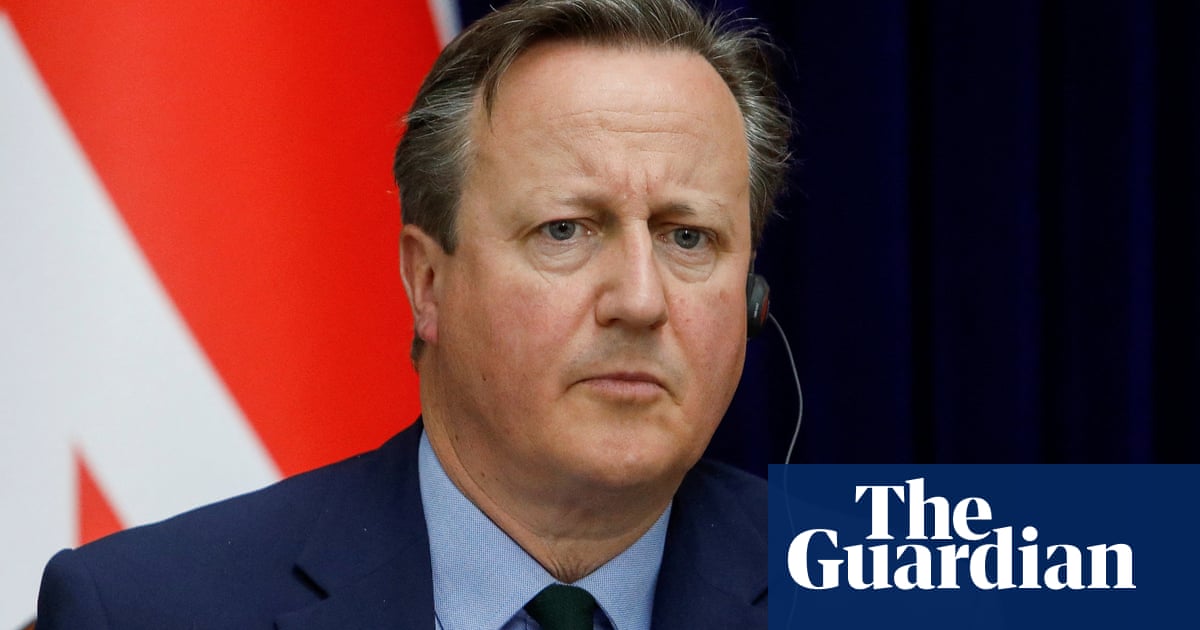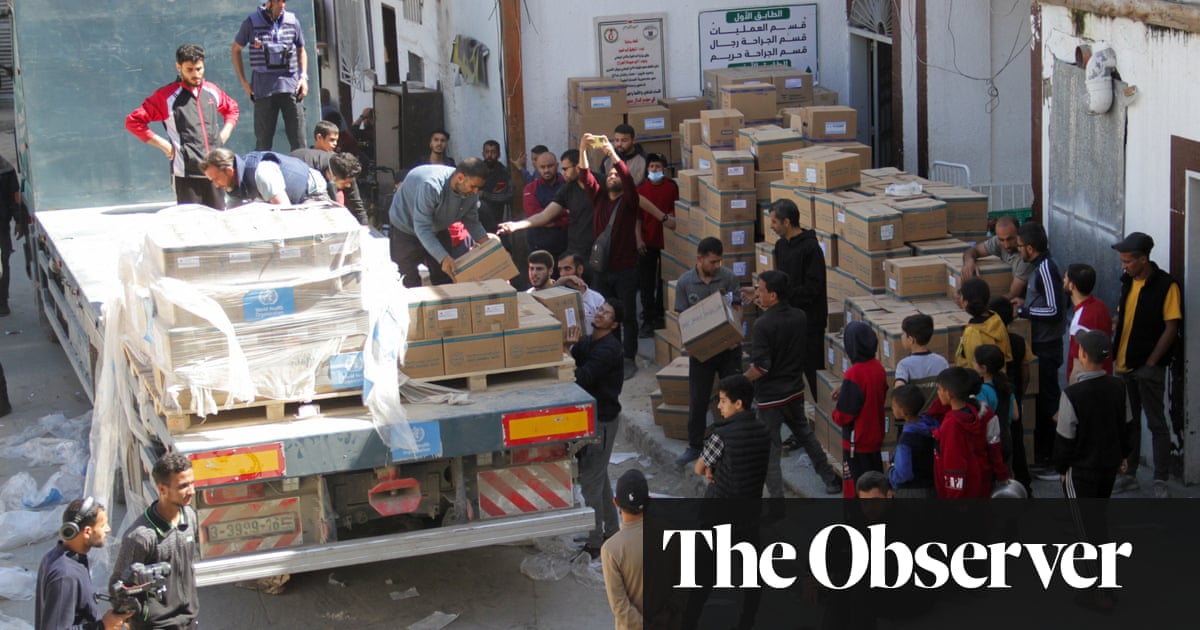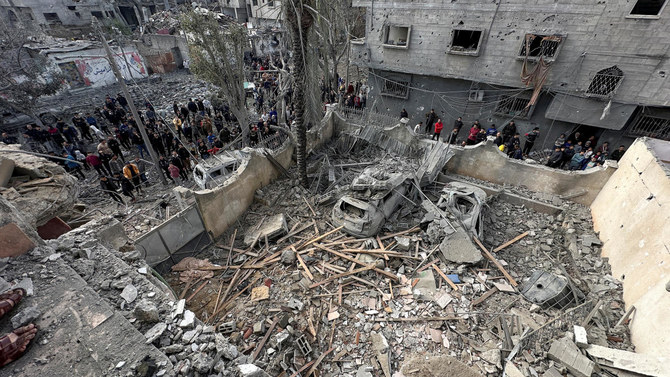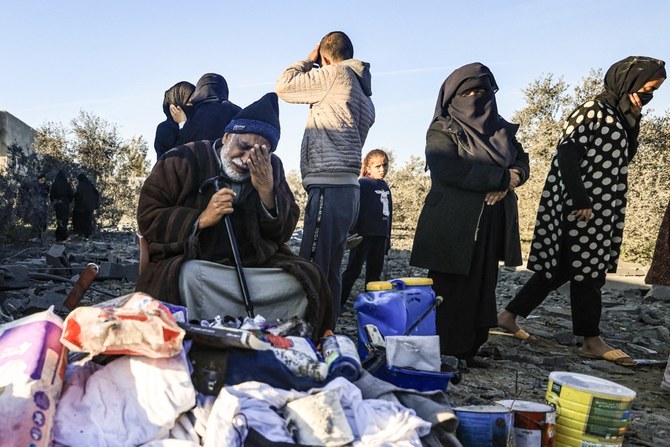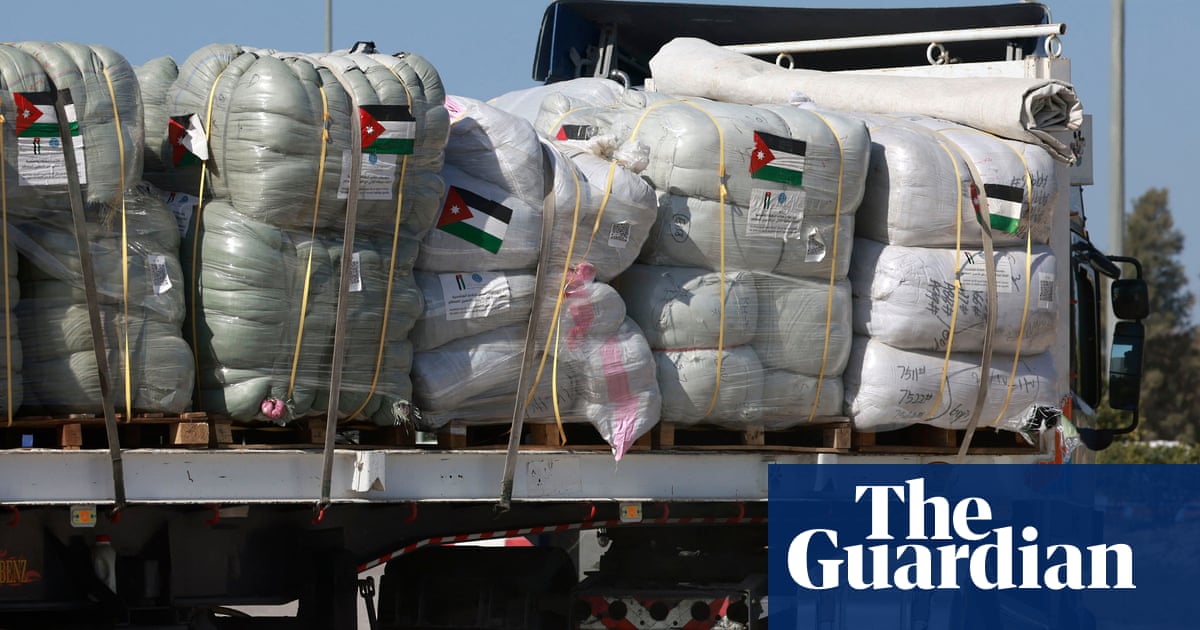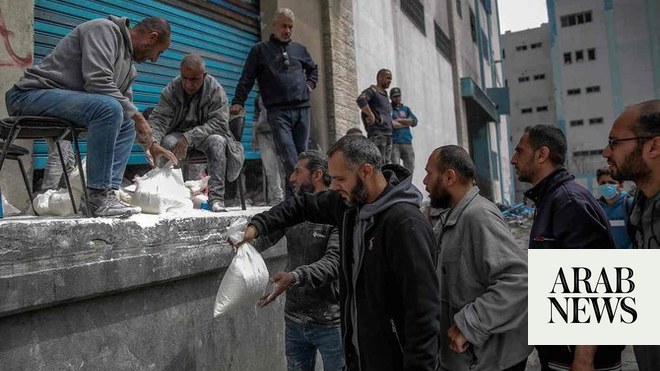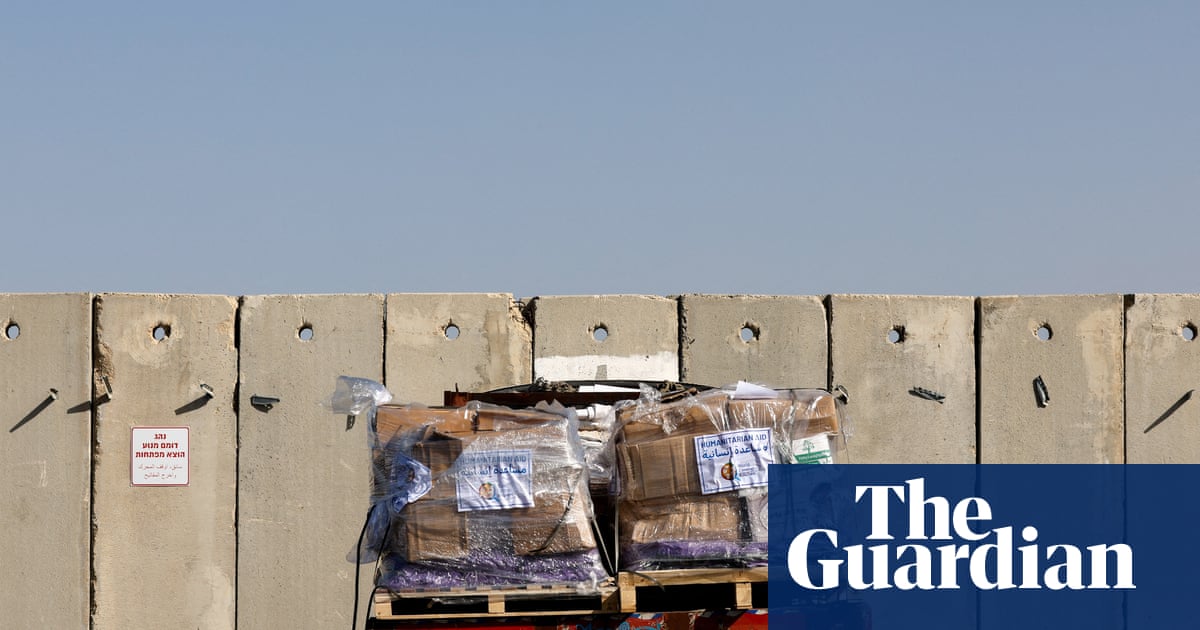
The British foreign secretary, David Cameron, has urged Israel to allow more humanitarian aid into Gaza, saying it will do nothing for hostages held in the territory or Israel’s war aims if the situation turns into an even greater catastrophe.
Writing for the Guardian, Cameron assembles a mass of practical steps that Israel could implement to save lives and avert the risk of hunger turning into famine. “Death and despair haunt these children’s lives. We know we must act,” he writes.
The foreign secretary is heavily invested in the issue personally and politically since he has insisted that a full ceasefire is not necessary for the levels of humanitarian aid reaching Gaza to be transformed.
His stance puts him at odds with senior Israeli military officials, such as Col Moshe Tetro, the head of the Israeli army unit responsible for the delivery of humanitarian aid, who said at a briefing on Wednesday: “There is no food shortage in Gaza” and “the reserves in Gaza are sufficient for the near term”.
Tetro, who works for Cogat, the Israeli military’s civil agency for the Palestinian territories, denied any bottlenecks at the Israeli end were preventing aid from reaching Gaza, asserting: “The problem lies with the international organisations processing and receiving the aid.”
By contrast, Cameron says he has not only identified bottlenecks that were leading to aid piling up while waiting to enter Gaza, but has found practical ways to unblock them that would allow “more aid delivered by land, more quickly and more effectively”.
“The situation is desperate – and projected to get worse,” he writes. “According to the World Food Programme, nine out of every 10 Palestinians in northern Gaza may be having less than one meal a day.” He says the number of aid convoys, which are creeping up towards 200 a day, needs to reach 500.
“It would do nothing for those hostages or Israel’s war aims if the situation turns into an even greater catastrophe,” he writes, insisting “there is much more we can do which will make an immediate difference”.
Although Cameron said the blockages could not be fixed by one country, most of his proposals were directed at Israel.
He urged more crossing points to be opened and for all existing crossing points to be open for longer hours and seven days a week, rather than shut completely on most of Friday and Saturday.
Echoing calls made in a separate Guardian interview with Scott Anderson, the deputy director of the UN agency for Palestinians in Gaza, the foreign secretary says it is vital that Israel show greater consistency in the goods allowed into the territory. “More rational and transparent explanations of what is restricted by Israel and why will allow governments, aid organisations and the private sector to scale up aid considerably,” he writes.
Cameron praised the UN and challenged Israel to do more to allow aid to be distributed within Gaza. “It is no good getting aid in if it cannot be safely and effectively distributed. More visas and imports of vehicles for them will mean their staff can enter Gaza, enhancing our confidence that aid reaches those in genuine need,” he writes. He rejected air drops as being too expensive and less effective than road deliveries.
He called on Israel to restore water supplies, electricity lines and allow fuel into Gaza to allow bakeries to reopen. Earlier this week the UK’s most senior Foreign Office civil servant, Sir Philip Barton, acknowledged that as an occupying power Israel had a duty under international humanitarian law to provide water to Palestinians.
Cameron says he supports a “sustainable ceasefire” rather than the immediate ceasefire “some say we must have”, but his checklist of action, by being specific, obtainable and largely in line with the demands from UN agencies in Gaza, may place a new pressure on Israel to respond, or add fuel to the claims that it is content to let Palestinians suffer. In his Guardian interview Anderson said the south of Gaza was rapidly becoming a “pressure cooker” that could explode.




